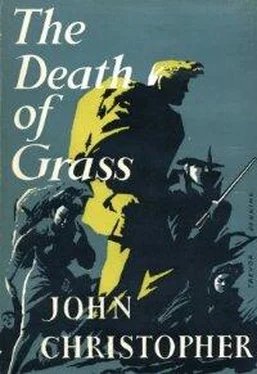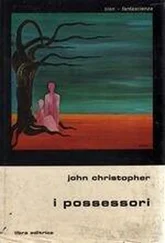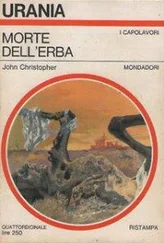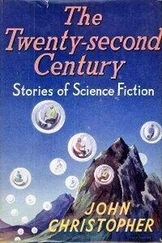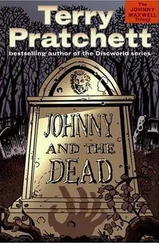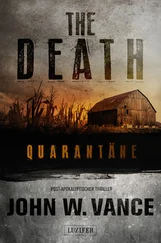The Death of Grass
by John Christopher
PRODROME {1} 1 Prodrome: preliminary book or treatise, introductory section
As sometimes happens, death healed a family breach.
When Hilda Custance was widowed in the early summer of 1933, she wrote, for the first time since her marriage thirteen years before, to her father. Their moods touched—hers of longing for the hills of Westmorland {2} 2 Westmorland: English county, now part of Cumbria
after the grim seasons of London, and his of loneliness and the desire to see his only daughter again, and his unknown grandsons, before he died. The boys, who were away at school, had not been brought back for the funeral, and at the end of the summer term they returned to the small house at Richmond only for a night, before, with their mother, they travelled north.
In the train, John, the younger boy, said:
“But why did we never have anything to do with Grandfather Beverley?”
His mother looked out of the window at the tarnished grimy environs of London, wavering, as though with fatigue, in the heat of the day.
She said vaguely: “It’s hard to know how these things happen. Quarrels begin, and neither person stops them, and they become silences, and nobody breaks them.”
She thought calmly of the storm of emotions into which she had plunged, out of the untroubled quiet life of her girlhood in the valley. She had been sure that, whatever unhappiness came after, she would never regret the passion itself. Time had proved her doubly wrong; first in the contentment of her married life and her children, and later in the amazement that such contentment could have come out of what she saw, in retrospect, as squalid and ill-directed. She had not seen the squalidness of it then, but her father could hardly fail to be aware of it, and had not been able to conceal his awareness. That had been the key: his disgust and her resentment.
John asked her: “But who started the quarrel?”
She was only sorry that it had meant that the two men never knew each other. They were not unlike in many ways, and she thought they would have liked each other if her pride had not prevented it.
“It doesn’t matter,” she said, “now.”
David put down his copy of the Boy’s Own Paper {3} 3 Boy’s Own Paper: boys’ magazine, popular earlier in this century
. Although a year older than his brother, he was only fractionally taller; they had a strong physical resemblance and were often taken for twins. But David was slower moving and slower in thought than John, and fonder of things than of ideas.
He said: “The valley—what’s it like, Mummy?”
“The valley? Wonderful. It’s… No, I think it will be better if it comes as a surprise to you. I couldn’t describe it anyway.”
John said: “Oh, do, Mummy!”
David asked thoughtfully: “Shall we see it from the train?”
Their mother laughed. “From the train? Not even the beginnings of it. It’s nearly an hour’s run from Stavely.”
“How big is it?” John asked. “Are there hills all round?”
She smiled at them. “You’ll see.”
Jess Hillen, their grandfather’s tenant farmer, met them with a car at Stavely, and they drove up into the hills. The day was nearly spent, and they saw Blind Gill {4} 4 gill: deep and often wooded ravine
at last with the sun setting behind them.
Cyclops {5} 5 Cyclop: one-eyed giant of Greek mythology who made thunderbolts for Zeus, ruler of the gods
Valley would have been a better name for it for it looked out of one eye only—towards the west. But for this break, it was like a saucer, or a deep dish, the sides sloping up—bare rock or rough heather—to the overlooking sky. Against that enclosing barrenness, the valley’s richness was the more marked; green wheat swayed inwards with the summer breeze, and beyond the wheat, as the ground rose, they saw the lusher green of pasture.
The entrance to the valley could scarcely have been narrower. To the left of the road, ten yards away, a rock face rose sharply and overhung. To the right, the River Lepe foamed against the road’s very edge. Its further bank, fifteen yards beyond, hugged the other jaw of the valley.
Hilda Custance turned round to look at her sons.
“Well?”
“Gosh!” John said, “this river… I mean—how does it get into the valley in the first place?”
“It’s the Lepe. Thirty-five miles long, and twenty-five of those miles underground, if the stories are to be believed. Anyway, it comes from underground in the valley. There are a lot of rivers like that in these parts.”
“It looks deep.”
“It is. And very fast. No bathing, I’m afraid. It’s wired farther up to keep cattle out. They don’t stand a chance if they fall in.”
John remarked sagely: “I should think it might flood in winter.”
His mother nodded. “It always used to. Does it still, Jess?”
“Cut off a month last winter,” Jess said. “It’s not so bad now we have the wireless.”
“I think it’s terrific,” John said. “But are you really cut off? You could climb the hills.”
Jess grinned. “There are some who have. But it’s a rocky road up, and rockier still down the other side. Best to sit tight when the Lepe runs full.”
Hilda Custance looked at her elder son. He was staring ahead at the valley, thickly shadowed by sunset; the buildings of the Hillen farm were in view now, but not the Beverley farm high up.
“Well,” she said, “what do you think of it, David?”
Reluctantly he turned his gaze inwards to meet her own.
He said: “I think I’d like to live here, always.”
That summer, the boys ran wild in the valley.
It was some three miles long, and perhaps half a mile wide at its greatest extent. It held only the two farms, and the river, which issued from the southern face about two miles in. The ground was rich and well cropped, but there was plenty of room for boys of twelve and eleven to play, and there were the surrounding hills to climb.
They made the ascent at two or three points, and stood, panting, looking out over rough hills and moorlands. The valley was tiny behind them. John delighted in the feeling of height, of isolation, and, to some extent, of power; for the farm-houses looked, from this vantage, like toy buildings that they might reach down and pluck from the ground. And in its greenness the valley seemed an oasis among desert mountains.
David took less pleasure in this, and after their third climb he refused to go again. It was enough for him to be in the valley; the surrounding slopes were like cupped and guarding hands, which it was both fruitless and ungrateful to scale.
This divergence of their interests caused them to spend much of their time apart. While John roamed the valley’s sides, David kept to the farmland, to his grandfather’s increasing satisfaction. At the end of the second week, boy and old man, they went together to the River field on a warm and cloudy afternoon. The boy watched intently while his grandfather plucked ears of wheat here and there, and examined them. His near vision was poor, and he was forced to hold the wheat at arm’s length.
“It’s going to be a fair crop,” he said, “as well as my eyes can tell me.”
To their right there was the continuous dull roar as the Lepe forced its way out of the containing rock into the valley.
David said: “Shall we still be here for the harvest?”
“Depends. It may be. Would you like to be?”
David said enthusiastically: “Oh, yes, Grandfather!”
There was a silence in which the only intrusion was the noise of the Lepe. His grandfather looked over the valley which the Beverley’s had farmed for a century and a half; and then turned from the land to the boy at his side.
Читать дальше
